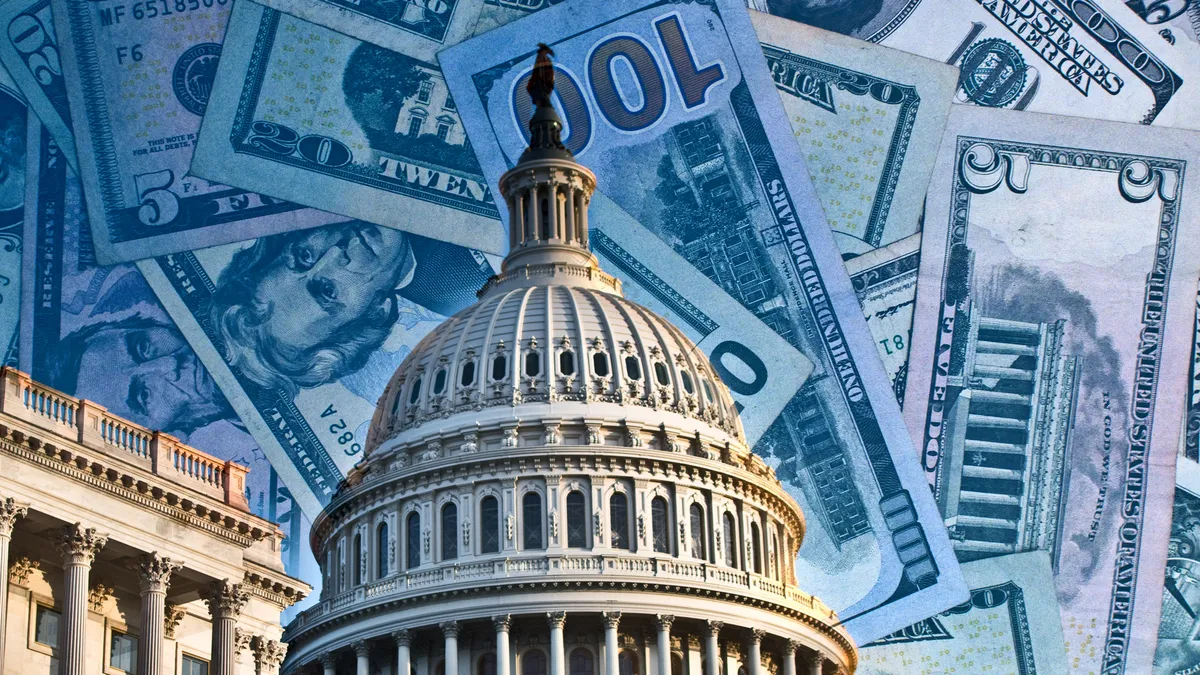Dive Brief:
- Republicans on the House Education and Labor Committee and the House Oversight and Reform Committee have begun an investigation into the reported use of federal pandemic relief funding for critical race theory curriculum, equity, inclusion and other programming that conservatives refer to as "leftist ideology."
- In Sept. 14 letters to U.S. Education Secretary Miguel Cardona, U.S. Department of Education Inspector General Sandra Bruce, and education officials in New York, Illinois, and California, the Republican lawmakers claim federal relief money is being directed to initiatives for "LGBTQ+ cultural competency," "environmental literacy," and "racially biased curriculum and programs based on Critical Race Theory" rather than to learning recovery efforts.
- The investigation highlights the divide across the nation regarding instruction focused on racial inequality and LGBTQ issues and how recovery aid should be allocated as schools balance demands for investments in academic, mental health and social-emotional recovery.
Dive Insight:
In the letter to Cardona, 30 Republican lawmakers ask the education secretary for documents and communications for the approval of American Rescue Plan funds for California, New York, Illinois, Michigan and New Jersey. Those states are all led by Democratic governors.
The letter said New York used some of the $9 billion it received to provide staff development on “culturally responsive sustaining instruction” and “privilege” and to recognize “equity warriors.”
Illinois, the letter said, received $5.1 billion, which it used partly "to emphasize 'equity and diversity' and make '“equity driven investments.'”
The letter to Cardona also asks for documents and communications related to the use of Elementary and Secondary School Emergency Relief funds for training or teaching on subjects related to critical race theory, diversity, equity, and inclusion, and other "racially biased training" or programs.
And at least 10 other state plans included proposals to use ESSER funds to implement "racially biased curriculum" and programs based on critical race theory, according to the letter.
All the documents sought should be submitted by Sept. 28, the letters state.
"The learning loss caused by the COVID-19 pandemic has been a global disaster," the letter to Cardona states. "Overwhelmingly, school shutdowns occurred in states and localities led by Democrats who chose to keep schools closed much longer than was necessary, often at the behest of teachers unions."
Nationally, schools received $189.5 billion in relief funding, of which $122 billion is from the American Rescue Plan. The ARP law requires states to reserve 5% and local school districts to reserve 20% for learning recovery programs.
ARP also requires states and districts to spend funds on evidence-based interventions and ensure that those interventions respond to students’ social, emotional, and academic needs. In addition, districts must address the disproportionate impact of COVID-19 on underrepresented students, including "each major racial and ethnic group, children from low-income families, children with disabilities, English learners, gender, migrant students, students experiencing homelessness, and children and youth in foster care."
An analysis released this week by FutureEd, a think tank at Georgetown University's McCourt School of Public Policy, shows districts are prioritizing ARP spending on staffing, academic recovery and facilities. The analysis is based on research from data services firm Burbio and covers 5,000 plans representing districts and charter organizations serving 74% of public school students and spending totaling $83 billion.
The most common areas within the academic spending category were for summer learning, instructional materials and software or instructional software.
Another analysis by FutureEd showed that despite political divisions around K-12 recovery priorities, actual spending in red and blue states was aligned more often than not. Nearly the same percentage of districts in red and blue states, for instance, said they plan to invest American Rescue Plan funds toward social-emotional learning.










